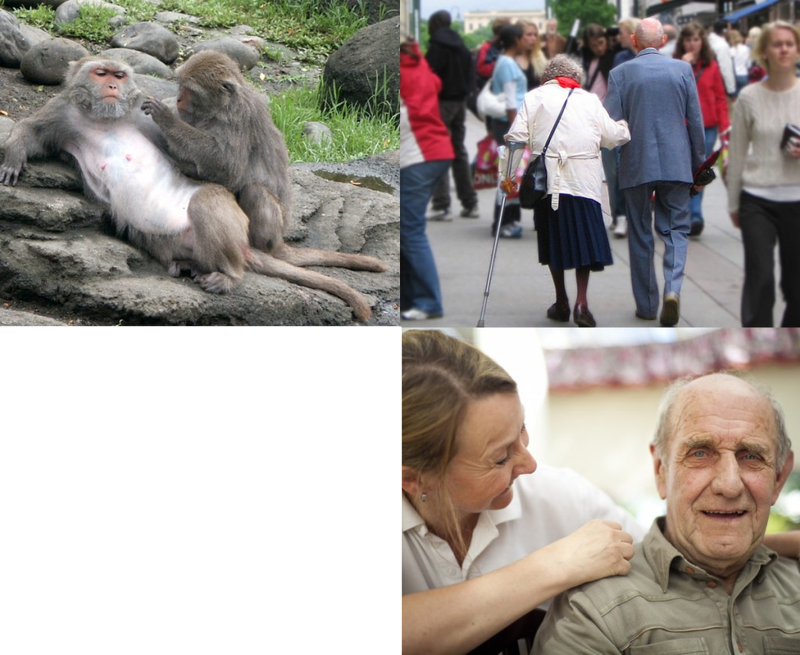Although we are primarily concerned with the survival of ourselves, our kin, and those who we feel are similar and important to us, we also desire to connect with and be accepted by other people more generally—the goal of other-concern. We live together in communities, we work together in work groups, we may worship together in religious groups, and we may play together on sports teams and through clubs. Affiliating with other people—even strangers—helps us meet a fundamental goal: that of finding a romantic partner with whom we can have children. Our connections with others also provide us with opportunities that we would not have on our own. We can go to the grocery store to buy milk or eggs, and we can hire a carpenter to build a house for us. And we ourselves do work that provides goods and services for others. This mutual cooperation is beneficial both for us and for the people around us. We also affiliate because we enjoy being with others, being part of social groups, and contributing to social discourse (Leary & Cox, 2008).
What the other-concern motive means is that we do not always put ourselves first. Being human also involves caring about, helping, and cooperating with other people. Although our genes are
themselves selfish
(Dawkins, 2006), this does not mean that individuals always are. The survival of our own genes may be improved by helping others, even those who are not
related to us (Krebs, 2008; Park, Schaller, & Van Vugt, 2008). Just as birds and other animals may give out alarm calls to other animals to indicate that a predator is nearby, humans engage
in altruistic behaviors in which they help others, sometimes at a potential cost to themselves.
In short, human beings behave morally toward others—they understand that it is wrong to harm other people without a strong reason for doing so, and they display compassion and even altruism toward others (Goetz, Keltner, & Simon-Thomas, 2010; Turiel, 1983). As a result, negative behaviors toward others, such as bullying, cheating, stealing, and aggression, are unusual, unexpected, and socially disapproved. Of course this does not mean that people are always friendly, helpful, and nice to each other—powerful social situations can and do create negative behaviors. But the fundamental human motivation of other-concern does mean that hostility and violence are the exception rather than the rule of human behavior.
Sometimes the goals of self-concern and other-concern go hand in hand. When we fall in love with another person, it is in part about a concern for connecting with someone else but is also about self-concern—falling in love makes us feel good about ourselves. And when we volunteer to help others who are in need, it is in part for their benefit but also for us. We feel good when we help others. At other times, however, the goals of self-concern and other-concern conflict. Imagine that you are walking across campus and you see a man with a knife threatening another person. Do you intervene, or do you turn away? In this case, your desire to help the other person (other-concern) is in direct conflict with your desire to protect yourself from the danger posed by the situation (self-concern), and you must decide which goal to put first. We will see many more examples of the motives of self-concern and other-concern, both working together and working against each other, throughout this book.

- 6071 reads






